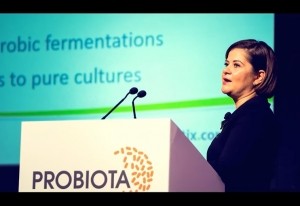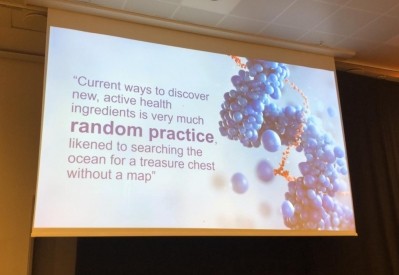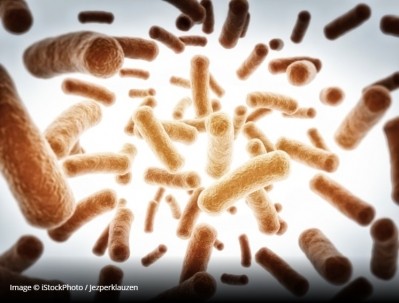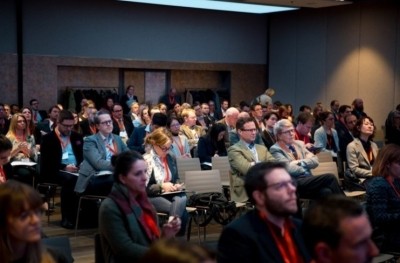Probiota 2022: Microbiome musings with Magali Cordaillat-Simmons
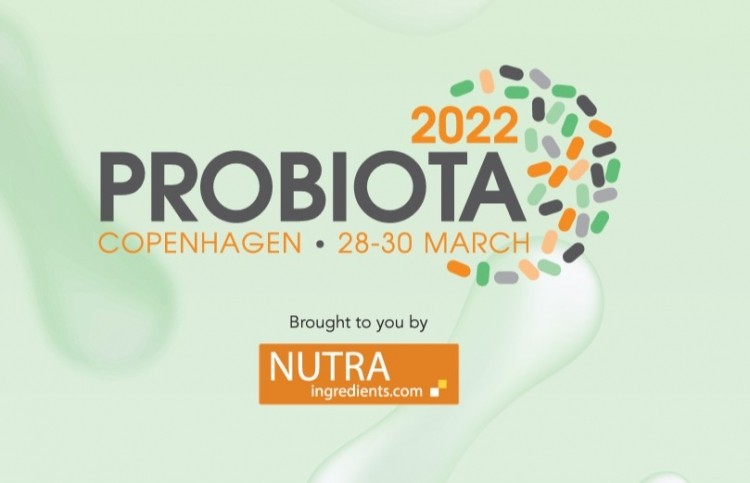
Magali Cordaillat-Simmons, Scientific and Regulatory Affairs Director at the Pharmabiotic Research Institute (PRI), is due to take part in day two’s (29 March) line up with a presentation entitled ‘The microbiome: an example on how regulatory science paves the way for innovative therapies'.
Her role involves supervising the Association’s regulatory intelligence strategy, so that “Microbiome-based Medicinal Products” (MMPs) become a therapeutic reality for European patients.
Firstly, your presentation mentions how regulatory science will help de-risk very innovative medicinal product development. But is there a scenario where regulation can stifle or suffocate innovation with red-tape and regulatory hurdles? How do you strike the balance?

Magali Cordaillat-Simmons (MCS): “Indeed regulation could affect innovation, and therefore even if most of the industry (microbiome-based drug products) may wish for more guidelines and regulation, it is not a bad situation we are experiencing now.
“In absence of such regulatory framework, it is still possible for pioneers to develop their products thanks to dialogue with regulators based on scientific advice or other procedures.
“It makes sense for regulators to see what it is out there and how is evolving to ensure regulations and regulatory frameworks will not slow down innovation.
“This is where regulatory science activities are fundamental as they address the various ways to improve assessment and robustness of developments based on most recent scientific and technological evolutions.
“It is sad to see the lack of involvement of EU regulators in microbiome regulatory science and the difficulty to have them on board in European projects as well.
“Our wish for the near future is to obtain more feedback from regulators along the activities in microbiome regulatory science in which we are involved (internally or through EU R&I projects).”
With existing laws and regulatory frameworks working in tandem both nationally and internationally, would you say one of the main challenges of pharmabiotic regulation both now and in the future is how a new standard will fit into these laws and frameworks?
MCS: “On the pharma world in which the PRI operates, we have global developments and quite a large harmonisation for requirements on biological drug products.
“We may have our specificities within the microbiome industry of course, but some concepts and mindsets are still applicable. It is the object of regulatory science activities to adapt scientific and technological evolutions in the documentation of products based on harmonised concepts/ mindsets and drug development general requirements.
“So, if new standards are developed based on robust science and considering those concepts/mindsets they should fit into the legislations and regulatory frameworks.
“It’s up to us to show what is the best approach within the limits of what is generally required to ensure future patients’ safety and products quality and efficacy.”
Do you also see a possible issue for regulators’ need to undergo training on these new standards and/or the possibility that industry may not be prepared or unsure as to how to respond to it?
MCS: “There is a need for training within regulators but within industry as well. Europe is way behind on regulatory science and absent in microbiome regulatory science.
“Proper programs dedicated to training professionals who will be able to make the link between regulators and developers are lacking and having an EU agora for regulatory science activities on microbiome would help filling the gap and improve knowledge for all stakeholders involved.
“But here again, experts in the field of microbiome regulatory science are also scarce and funding is often lacking for such activities in the microbiome field.”
With expectations growing to reduce regulatory and policy burden for pharmabiotics do you see expectations for more transparency increasing considering any ethical issues in using biological-based material?
In the context of a complex multinational supply chains, would you say the convergence of standards would therefore be even more critical?

MCS: “I think expectations are not exactly for decreasing regulatory burden, it is more about ensuring that regulations leave place for flexibility and innovation while staying within the ethical limits.
“There are ethical issues when using human samples, even stools. We should not forget to consider these aspects and the regulators is starting to address this question through recent evolution regarding stool collection regulation at the EU or French level.
“In that regard, I do hope that international approaches are taken rather than national ones. But regulators need pre-competitive projects working at emergence of consensus and standards from the ground: collaborations between academia and industry themselves.
“It is upon the microbiome community to develop large scale / international projects which will then inform various regulators worldwide.
“Like it is the case for the Human Microbiome Action project for example where regulatory considerations are considered and proposals will be submitted at the EU level while discussions integrate the results of collaborations with other international networks of experts.”
Finally, in going forwards, what would you like to see develop in European legislative framework governing pharmabiotics that would aid in the confirmation of the quality, safety, and efficacy of these therapeutics?
MCS: “What we need is the recognition of the existence of those products (microbiome-based drug products) within the pharma legislation.
“Maybe as a category of biologics like it was done for ATMPs in the past. Through this process, it would then almost automatically initiate discussions surrounding their evaluation, the standards to be applied and the regulatory science needs for robust assessment of their quality, safety, and efficacy.
“With the current revision of the pharma legislation following the proposal for introduction of stools as new SoHOs in the BTC legislation, we do have a “one in a lifetime” opportunity and we are hopeful “that the commission will see that all the projects funded in the past justify the need for the inclusion of medicinal products emerging from microbiome science in the revised pharma legislation.”
Magali Cordaillat-Simmons is due to take part on Tuesday 29 March’s session entitled: ‘The microbiome: an example on how regulatory science paves the way for innovative therapies,’ scheduled for approx. 16:30.
About Probiota
Held on 28-30 March in Copenhagen, Probiota aims to bridge the gaps between cutting-edge science, business strategy, and key regulatory developments in the microbiome, probiotic, and prebiotic markets.
The three-day event will bring together CEOs, academics, and top researchers for networking opportunities, in addition to interactive presentations and debates in the fields of probiotics, prebiotics and the microbiome. For more information and to register, please click HERE.
